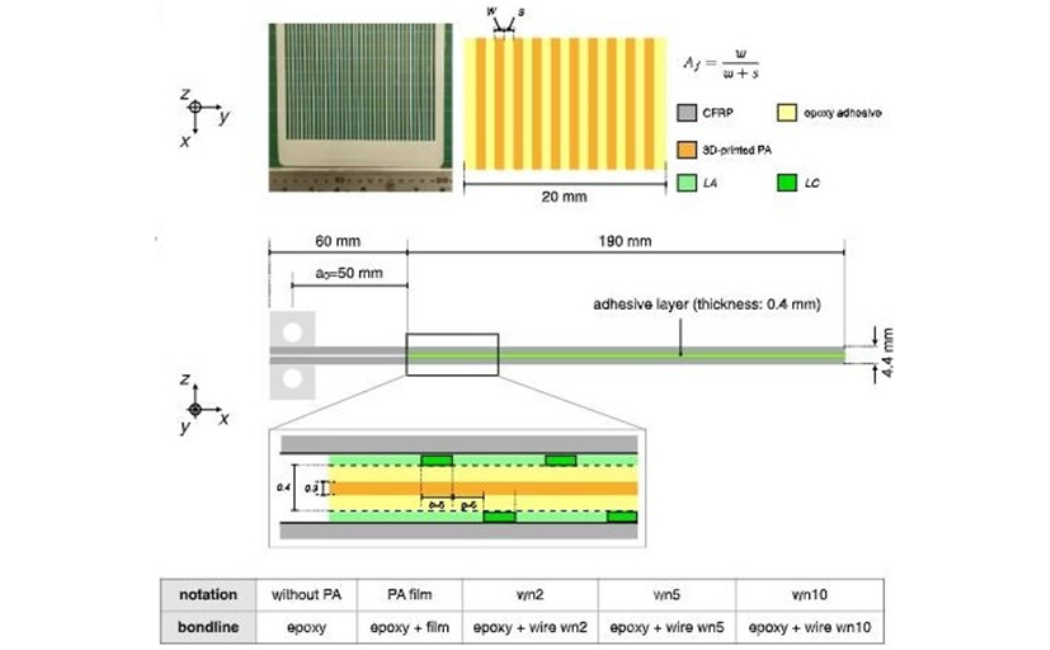


02 April, 2022
Toughening adhesive joints through crack path engineering using integrated polyamide wires
Ran Tao, Xiaole Li, Arief Yudhanto, Marco Alfano, Gilles Lubineau
Ensuring the progressivity of failure of adhesively-bonded composite joints is necessary to guarantee safety and to optimize maintenance operations. In our previous work, we proposed a novel surface patterning strategy to stop crack propagation by triggering bridging of adhesive ligaments. However, the brittle failure of classical bridging ligaments still releases a large amount of stored elastic energy, leading to a snap-slip crack propagation or even catastrophic sudden fracture of bonded joints. Such technology could be further improved by integrating ductile structures within the adhesive layer, but the detailed failure mechanisms require systematic investigation. In this work, we integrated thermoplastic polyamide structures within the epoxy adhesive layer of double cantilever beams to guide this transition from brittle failure to a stable softening behavior. Weak polyamide/epoxy adhesion and their embedded area fractions were critical since they affected the damage mechanisms and determined energy dissipation within bonded joints.
Adhesive joints; CFRP; Extrinsic toughening; Polyamide inclusions; DCB